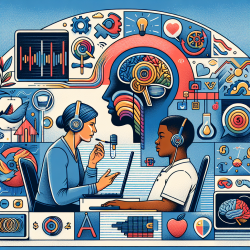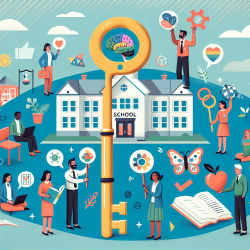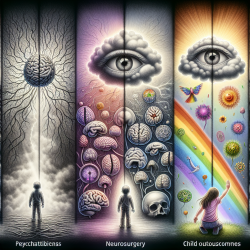The need for effective sexual health education tailored to youth with intellectual disabilities (ID) is increasingly recognized. A recent mixed methods study titled "Sexual and Reproductive Health Education for Youth with Intellectual Disabilities: a Mixed Methods Study of Professionals’ Practices and Needs" sheds light on current practices and the professional needs of those involved in delivering such education. This blog explores key findings from the study and provides actionable insights for practitioners.
The Importance of Sexual Health Education for Youth with ID
Youth with intellectual disabilities experience sexual desires and behaviors similar to their peers without disabilities. However, they often face barriers to accessing appropriate sexual health information, increasing their risk of sexually transmitted infections (STIs) and other negative outcomes. Addressing these challenges requires tailored educational resources that respect their rights and promote informed choices.
Key Findings from the Study
The study involved a survey of 632 disability support professionals and focus groups with 36 professionals. The research highlighted several critical areas:
- Attitudes Towards Sexual Health Education: Professionals generally held supportive attitudes towards providing sexual health information to youth with ID. However, non-licensed providers reported less positive attitudes compared to licensed professionals and administrators.
- Preparedness to Communicate: While many professionals felt somewhat prepared to discuss sexual health topics, there was a significant need for training to enhance their confidence and skills.
- Professional Needs: The study identified a strong demand for specialized educational tools and organizational support to integrate sexual health into job roles effectively.
- Communication Practices: Most professionals reported communicating about sexual health reactively rather than proactively, indicating a need for more routine discussions.
Recommendations for Practitioners
The findings suggest several strategies that practitioners can adopt to improve sexual health education for youth with ID:
- Pursue Professional Development: Engage in training programs that focus on building communication skills and understanding best practices in sexual health education.
- Utilize Accessible Teaching Tools: Incorporate interactive and hands-on materials that cater to the diverse learning needs of youth with ID.
- Foster Supportive Environments: Advocate for organizational policies that support routine discussions about sexual health and provide clear guidelines for staff.
- Encourage Proactive Communication: Shift from reactionary to preventative conversations about sexuality, ensuring that youth receive consistent and accurate information.
The study underscores the importance of equipping professionals with the necessary tools and knowledge to support the sexual health education of youth with ID effectively. By implementing these recommendations, practitioners can play a crucial role in enhancing educational outcomes and empowering youth with intellectual disabilities.
To read the original research paper, please follow this link: Sexual and Reproductive Health Education for Youth with Intellectual Disabilities: a Mixed Methods Study of Professionals’ Practices and Needs.










